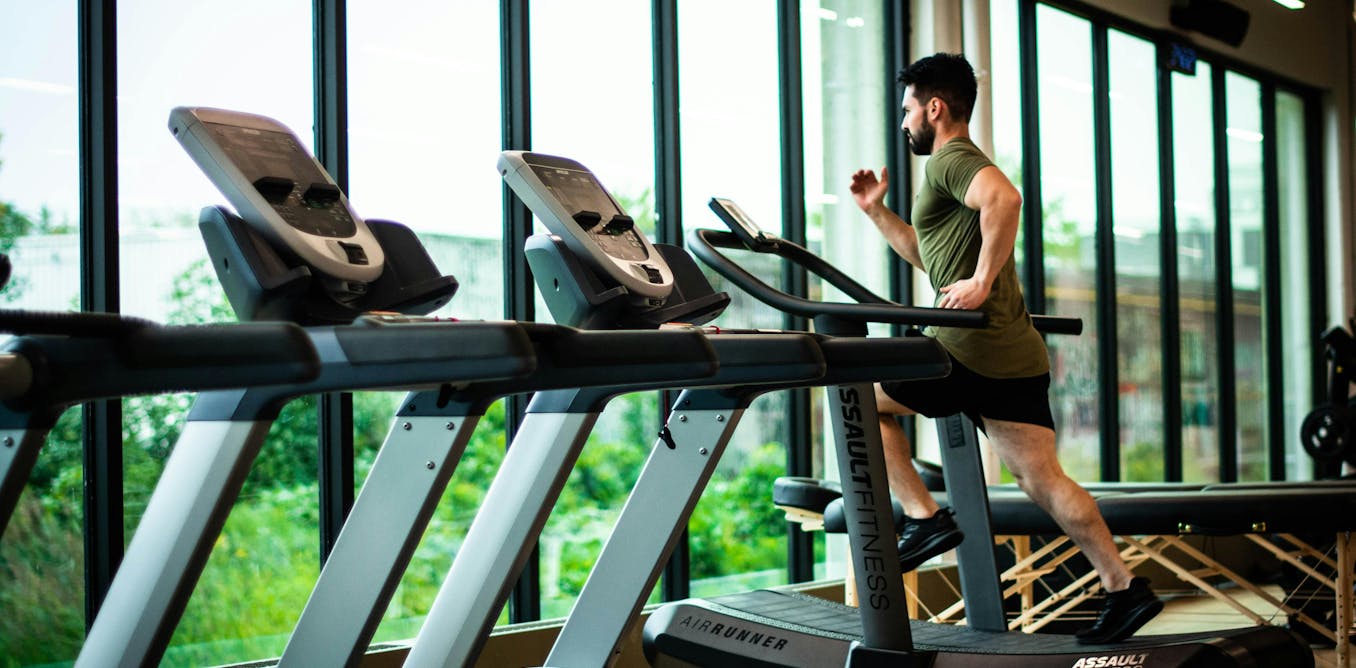Being a ‘weekend warrior’ could be as good for brain health as exercising throughout the week, new study shows


With the responsibilities of adulthood, free time can be a rare commodity. Many of us find ourselves asking, “I barely have time to cook dinner. How can I find time to exercise regularly during the week?”
The health benefits of exercise – which include reduced risk of chronic diseases such as heart disease and dementia – can seem out of reach due to the pressures of work and life.
But a new study published in the journal Nature Aging offers some good news for people who struggle to fit regular exercise into their weekday schedules.
The findings suggest “weekend warriors” – those who get most of their exercise on the weekend – may enjoy the same brain health and mental health benefits as those who exercise regularly throughout the week.
What the study did
The research team, from China, analysed data from more than 75,000 people from the UK Biobank. This is a large cohort study tracking the health of about half a million people in the United Kingdom. More than 100,000 of them wore wearable activity trackers. The average age of participants in this study was 62.
Participants provided data from wrist-worn wearable devices to track their physical activity patterns over a period of seven days. They were then categorised into three groups:
- inactive: people who were not meeting the recommended 150 minutes of moderate-to-vigorous physical activity per week
- regularly active: those meeting the guidelines with activity spread throughout the week
- “weekend warriors”: people meeting the guidelines by accumulating more than 50% of their activity across one to two days (this was not necessarily Saturday and Sunday, but any one or two days of the week).
The researchers followed up participants for a median period of 8.4 years. They used GP records, hospitalisation data and death records to track the onset of neurological diseases (dementia, stroke and Parkinson’s disease) as well as psychological disorders (including depression and anxiety).
The researchers adjusted for several key lifestyle and health factors that could affect these outcomes. These factors included age, sex, smoking status, alcohol consumption, diet and history of conditions such as diabetes, hypertension (high blood pressure) and cancer.
Tint Media/Shutterstock
Weekend warriors reap big rewards
Among the roughly 75,500 participants, about 24,300 were classified as inactive, 21,200 as regularly active and 30,000 as weekend warriors.
The results showed that, compared to inactive adults, weekend warriors had a 26% lower risk of developing dementia, a 21% lower risk of stroke and a 45% lower risk of Parkinson’s disease. Their risk was 40% and 37% lower for depression and anxiety respectively compared to the inactive group. All these figures in the weekend warrior group were comparable to outcomes for those who were regularly active.
The protective associations against depression and anxiety were consistent across age groups, both under and over 65. However, the reduced risks for dementia, stroke and Parkinson’s disease were particularly pronounced in people over 65. This finding reflects the significant benefits of physical activity for older adults, who are at higher risk of these conditions.
There’s more than one way to get the benefits
What if weekends are off-limits for exercise due to work, family duties or other commitments? Fortunately, the researchers explored different patterns of the weekend warrior lifestyle.
They found that as long as people accumulated the majority of moderate-to-vigorous physical activity on any one or two days of the week – even if these weren’t consecutive days – they achieved similar health benefits.
In a previous studyalso using UK Biobank data, researchers similarly found people who do most of their exercise across one or two days see similar benefits for heart health as those whose physical activity is spread more evenly across the week.
siam.pukkato/Shutterstock
And if traditional gym-based exercise isn’t your thing, you’re still in luck. The study used activity trackers that monitored all types of activities. So regardless of how you accumulate your moderate-to-vigorous activity, this study suggests you’ll reap the health benefits.
This aligns with a growing body of research that shows that whether it’s short bursts of daily activities like stair climbing or household chores or going for a walk at the park, or longer sessions of running or gym workouts, the health benefits are there for everyone.
Some caveats to consider
The researchers accounted for various lifestyle and health factors. However, it’s still possible other factors could have influenced some of the associations.
Another limitation is that the study couldn’t assess how changes in physical activity over time might impact brain health. Previous research has shown that even inactive adults who increase their activity levels can experience immediate health benefits.
Nonetheless, the findings add to a substantial body of evidence supporting the brain health benefits and overall health benefits of moderate-to-vigorous physical activity – on whatever days of the week you can fit it in.
Recent Posts
Shake Up Your Meal Routine with These 5 Healthy Twists
Introduction to Healthy Eating Did you start 2025 with a promise to eat better but…
The Risks of Overusing Nasal Decongestant Sprays
Nasal Decongestant Sprays: A Double-Edged Sword Nasal decongestant sprays are a popular remedy for relieving…
Weight Stigma in Maternity Care Harms Larger-Bodied Women and Babies
Introduction to Weight Stigma in Maternity Care According to a study from the United States,…
Peppered Chicken
Quick and easy black pepper chicken is a restaurant-quality meal that’s also ridiculously easy to…
Cute Tennis Outfits to Turn Heads
She pairs them with shorts that won’t bunch or ride up, like Wilson’s Tennis Ball…
Effective Weight Loss Solutions Beyond Dieting
Introduction to Obesity More than 2.5 billion adults worldwide are currently overweight or obese, according…


